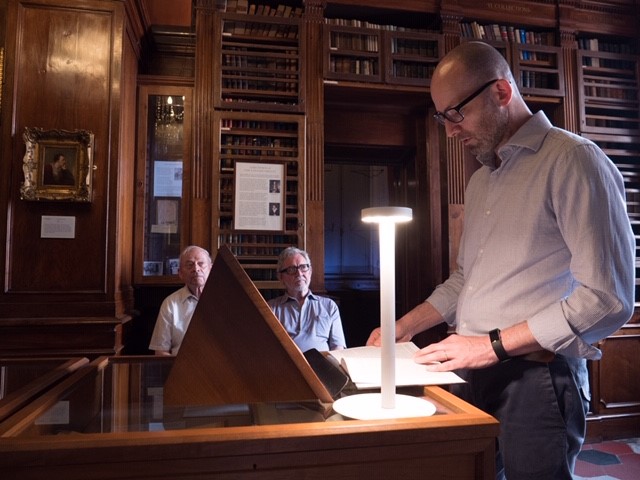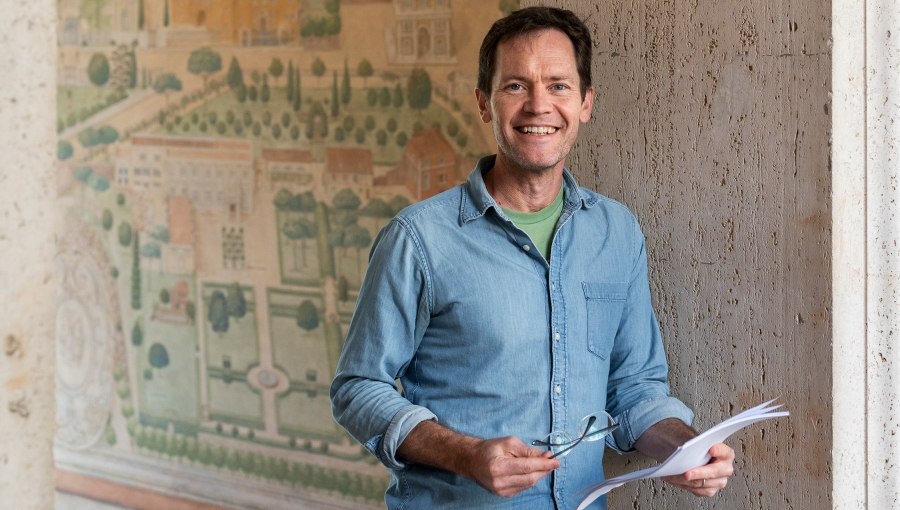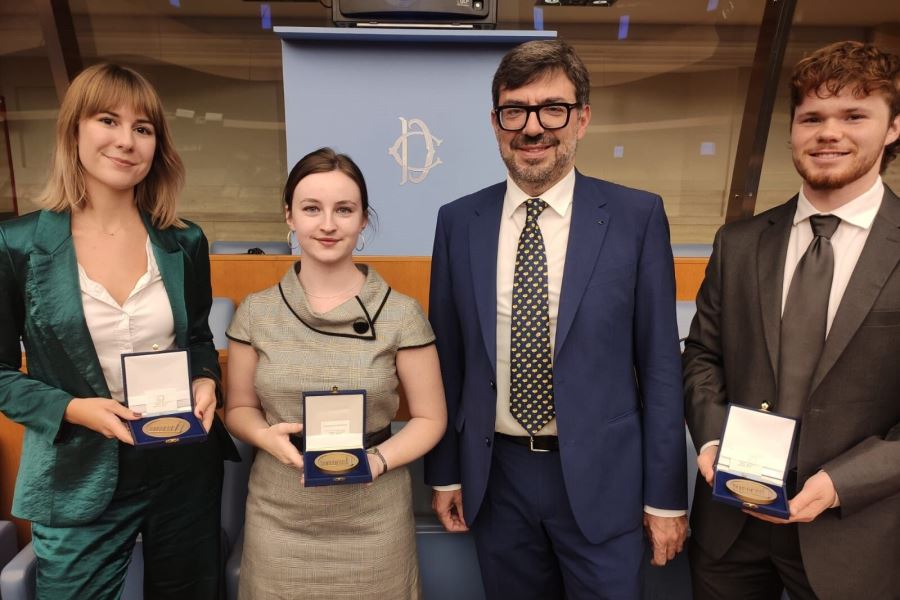All Things Italian: Professor James Schwarten
Born and raised in Milwaukee, Wisconsin, Professor James Schwarten earned his Ph.D. in Italian Studies from the University of Wisconsin-Madison in 2005. He recently contributed an article to Binario 95’s winter issue of Shaker, in which he explained the approach he adopts in discussing the topic of homelessness with students. Professor Schwarten has been affiliated with JCU since 2012, where he teaches courses in Italian Studies and sociology.
Your research interests are Italian language and literature, translation, and sociology. How did you become passionate about these topics?
My interest in “all things Italian”, ranging from translation to literature to the Italian language, stems from my mother, who was born and raised in Italy. As an adjunct instructor in Italy, over the years I have been asked to teach courses on a wide range of topics. My interest in sociology goes back to my undergraduate coursework as well as my Ph.D., for which I studied both Italian literature and sociolinguistics as a part of my varied interests in Italian Studies. I continue to teach courses in all of these areas.
You were asked to contribute an article to Binario 95’s winter issue of Shaker, in which you explain the approach you adopt in discussing the topic of homelessness with students. Tell us more.
Binario 95, an ongoing, non-profit project under the aegis of Europe Consulting Onlus, is a social cooperative (not, however, in the Italian sense of centro sociale) that functions as a help center for marginalized people in and around Rome’s Termini Station. Among the various types of assistance and counseling that Binario 95 provides, such as social reintegration assistance, the center also functions as a shelter for people in need of short-term lodging.
My goal is to bring students’ attention to some of the specific dynamics of homelessness and to give them the opportunity to engage directly with the stakeholders at Binario 95. The class meets at Termini Station, where we discuss such issues as the determinants of homelessness, why some individuals elect not to leave the streets when given a choice, and the effects that the commercialization of public space, like Termini Station, can have on people who are homeless. Once we touch on these and other issues, I mention the quantitative aspects of homelessness in Italy and Rome in order to give students a sense of the scope and context of the phenomenon. We also reflect on the story of Modesta Valenti, a marginalized elderly woman who died in Termini Station in 1983.
We then meet with members of the staff at Binario 95, who expand upon the notions previously discussed and describe the functioning of the facility. Students are given ample time to voice their questions, concerns, or curiosities in a concluding Question and Answer session. The topic of homelessness is always urgent and has only become more dramatic during the COVID-19 pandemic. Social distancing measures have forced shelters to reduce capacity, leaving many homeless people vulnerable.
You have translated books, essays, and plays from Italian to English. What’s the most important thing that an aspiring translator should always remember?
What I consider the most significant challenge is the need to maintain a sense of deep responsibility toward the author’s original intentions. In order to do this credibly, one needs to have not only a superior command of the source language but also a profound understanding of the culture and society in which that language is spoken. In my view, the most important thing an aspiring translator should remember is not to rush; each translation takes time and should be a thoughtful and reflective process that may require a good amount of revision.
Tell us more about your on-site class “Rome: Modern City.”
I was very pleased to have been offered to teach this course back in 2013. As a site course, it enables me to apply an important aspect of my teaching philosophy in the field; that is, questioning previously held knowledge and convictions. Teaching a course like Rome: Modern City provides a distinctive opportunity to reconsider some of the stereotypes about the city or to inquire about such common trends as gentrification or homelessness. Students often find the course a suitable counterweight to others that look at the city from the perspective of its ancient past or its artistic grandeur.
Why should prospective students choose to major in Italian Studies?
The main reason why students should consider Italian Studies as a major is the breadth that it offers; students can take courses in a range of disciplines that suit their intellectual interests or curiosities. Moreover, such interdisciplinarity can position students as creative thinkers and complex problem solvers who can adapt well in the fast-paced, changing world we live in by applying an eclectic array of strategies.
Any current/future projects?
I am currently developing a qualitative research project on the effects of depopulation in rural Italy, with specific attention toward the region of Abruzzo.






